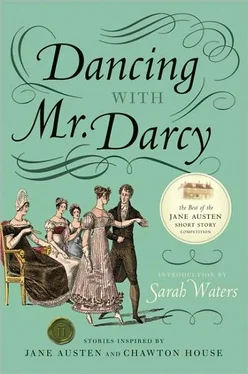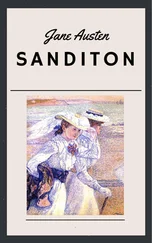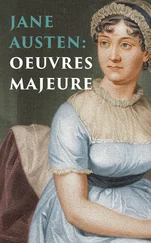‘When two sympathetic hearts meet in the marriage state, matrimony may be called a happy life. When such a wedded pair finds thorns in their path, each will be eager, for the sake of the other, to tear them from the root. Patience and love will accompany them in their journey, while melancholy and discord they leave far behind—Hand in hand they pass on from morning till evening, through their summer’s day, till the night of age draws on, and the sleep of death overtakes the one. The other, weeping and mourning, yet looks forward to the bright region where he shall meet his still-surviving partner, among trees and flowers which themselves have planted, in fields of eternal verdure.’
There followed a moment of silence in which Mary did not seem able to speak. I could not wonder at this. The fervent, almost reverent tone in which Edmund spoke before his passion spent itself and sank his voice into a tremulous whisper had moved even me, the offstage observer peeping through a crack in the door. Mary managed to answer but her voice was strange to me when she spoke.
‘You may tell my father… I’ll marry.’
Their eyes, as if by some communion moved up from the paper and to each other.
‘This picture is pleasing; but I must beg you not to forget that there is another on the same subject. When convenience and fair appearance, joined to folly and ill humour, forge the fetters of matrimony, they gall with their weight the married pair. Discontented with each other – at variance in opinions – their mutual aversion increases with the years they live together. They contend most where they should most unite; torment, where they should most soothe. In this rugged way, choked with the weeds of suspicion, jealousy, anger, and hatred, they take their daily journey, till one of these also sleep in death. The other then lifts up his dejected head, and calls out in acclamations of joy – oh, liberty! Dear liberty!’
I started and moved away from them. I had stayed too long after all, it was rude to watch, and suppose Mary or Edmund happened to look up and see me spying through the door, how would that look? But why should I feel my cheeks burn, throbbing with some strange and violent heat, and why that tight clenching in my stomach? Why — it’s as if I had just been caught in the act of something shameful. Nothing had been said, they were only the worthless lines from a play; they were invented, unreal, and had no reason to make me press against the wall and gasp for breath. Dr Grant and I were not unhappy after all, he was not a bad husband or unkind. Really we rubbed along quite well together. He has his bursts of temper to be sure and at such moments I can sense, rather than see, Mary and Henry’s exchanged looks. Yet they do not take into account the whole picture. He has sense and is considerate for my comfort; when not disturbed by some culinary mishap he can be very pleasant company. There were times in the beginning when my gnawing miseries consumed me utterly… but they were all in the past. Now I have things to occupy me, to make me — no, not happy perhaps but content and, if not always content, if there are occasions when I still yearn for more, when long hours are spent awake burning and bristling in the night, I am always comfortable.
I wasn’t quite quick enough in moving away to miss a murmured ‘“I am in love”’ from Mary. Her character or her words? For I rather think poor Mary is in love, for all her fashionable airs that laughingly disclaim anything like affection she is as caught as Edmund. Hardly a night passes that she doesn’t burst into my room before we all settle down for bed; to talk over the day’s events, to spear the follies of those at the house upon her wit, but most of all to speak of Edmund. And when she doesn’t speak of him she speaks around him, as if all she thinks and says is framed around that sacred spot he occupies. She laughs and chatters and dazzles, pacing about my room in an almost manic frenzy of joy. She is alive and exulted with love. Her talk is all for Edmund and when we visit the house daily now her eyes are all for Edmund too.
Yet I have more to look forward to, real joys that quicken and breed with each passing day. To have a child of my own. I have only recently coerced Dr Grant to try for a baby and though there has been no joy yet, I feel a powerful certainty that tells me it shall be soon. For now there is a little girl in the village named Catherine, or Kitty as I call her. I go to her every few days and sit with her for a couple of hours, and when I hold her I think of the child I haven’t yet had. There is a pang in this. There must always be a pang. But there is delight too. Even the storms and rages of her tantrums become a pleasure as, in the moments after, while I soothe her on my knee, she clings to me with such passionate desperation. Could a lover do such, all fickle caresses and empty words? Can a few enchanted hours, hazy with love, eclipse this?
I’ve moved downstairs and can hear the voices of the others now, they have come. For a moment I imagine them as my avid audience watching my entrance, eager to see my great performance. But when I brush through the doorway they are clustered about in a circle only looking at each other. Still I move towards them gratefully, almost greedily, eager for their bright, light talk and the warmth of their company. A flicker of my eye spies Miss Price by the window, half obscured by the careful draping of the curtain. Mr Rushworth is with her, stuttering and stumbling over his lines. Yet for once Miss Price is not carefully attending to him; tirelessly listening, nodding and correcting his lines without a flicker of impatience as is her wont. Instead her gaze is absently contemplating something in the distance, replaying some scene of the past or of her own imagination. There is something stricken and almost fierce in her gaze that both calls to and answers me. For a moment we lock eyes and share a long, measured look. Yes there it is, there I am – but before I falter I turn away.
Mr Bertram’s voice swells over the other’s chatter briefly and I catch his words: ‘Come now, Yates, we all have our parts to play and you must play yours. No more of your sly evasions and—’
His words fall then and become lost among the general din; yet they continue to reverberate within me. Yes, Mr Bertram, we do all have our parts to play. For Mary, my Mary, there will be nothing but the centre stage, the sun of Edmund’s love upon her, she will burst and bask and revel in its glorious rays. I can feel its reflections even offstage. I imagine how it must feel and for a moment, imagining, can almost feel it too.
For me in the wings awaits a wilting darkness, but the mask will never slip. I will take my cue and not miss a line, no matter if no one is attending. Yet I will not shroud myself in misery, I may blaze with my own joys too. In the darkness I will search out my happiness for myself, uproot it before I wither. One must find their comforts and I will find mine. Somewhere. Everywhere. But now I really must be home in time for Dr Grant’s dinner.
My inspiration: I was inspired by the following passage in Mansfield Park, spoken by Mrs Grant: ‘There will be little rubs and disappointments everywhere, and we are all apt to expect too much; but then, if one scheme of happiness fails, human nature turns to another; if the first calculation is wrong, we make a second better: we find comfort somewhere.’
The Oxfam Dress
Penelope Randall
Kelsey, Lucy, Bex. And Charlie.
The problem was cash, or rather, the lack of it. Charlie didn’t have the means to Keep Up, so one day soon three beautiful friendships must end. A chunk of her world would vaporise and vanish. When this mood hit her Charlie pictured light sabres from Star Wars. Ker-pow. Just like that.
Читать дальше












